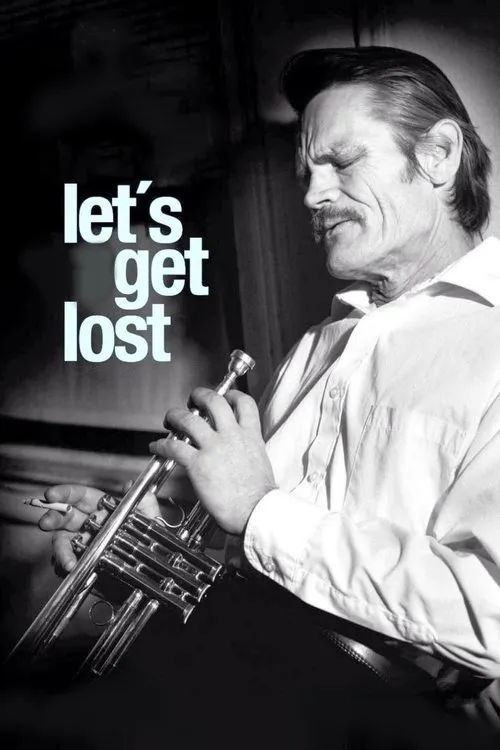Let's Get Lost

Plot
"Let's Get Lost," a poignant and thought-provoking documentary by Bruce Weber, delves into the complex and tragic life of jazz legend Chet Baker. The film masterfully interweaves footage from the 1950s, when Baker was an integral member of the West Coast Cool movement, with scenes from his later years, revealing a stark contrast between the young, charming trumpet player and the aged, detached musician he became. The film opens with images of Baker's early days in California, where he played alongside other influential jazz musicians, including Gerry Mulligan and Charlie Parker. These scenes are interspersed with footage of Baker's Italian escapades, where he appeared in the 1959 film "Italian Rococo," a movie that showcased his on-screen presence and charm. However, it is also during this period that Baker's struggles with addiction began to take hold, and he was arrested on several occasions for possession of heroin. As the documentary progresses, we see glimpses of Baker's personal life, including his relationships with women. His ex-wife, Carol Burnett, and his children, including Catherine Baker, recount their experiences with the musician, who was both loving and distant. Women who shared his life, such as Cherchez, also provide insight into Baker's complex personality, revealing a man torn between his creative passions and his deep-seated struggles with addiction and personal demons. One of the most striking aspects of "Let's Get Lost" is its juxtaposition of Baker's youthful vibrancy with his later years. As we see him perform alongside his peers in the 1950s, his trumpet playing is lively and full of energy, and he exudes a charming confidence on screen. However, as the film cuts to his later years, Baker's detached, almost zombie-like demeanor is jarring. His face, once a picture of beauty, is now a ruin, his eyes sunken, and his skin sallow. Throughout the film, Baker's friends and fellow musicians also offer their perspectives on the musician, recalling his remarkable talent and the impact he had on the jazz scene. The likes of Steve Allen, a contemporary of Baker's, and Don Cherry, a fellow jazz musician, share their memories of Baker, highlighting his unique ability to create music that was both melancholy and uplifting. "Let's Get Lost" is not a hagiography, however. While the film celebrates Baker's artistic achievements, it also confronts his flaws and personal struggles head-on. Director Bruce Weber, known for his lyrical and introspective approach to documentary filmmaking, crafts a narrative that is both a tribute to Baker's music and a poignant exploration of his human fragility. Ultimately, "Let's Get Lost" is a powerful exploration of the highs and lows of Chet Baker's life, a musician whose talent and charisma were matched only by his demons and personal struggles. The documentary is a testament to the enduring power of Baker's music, which continues to resonate with listeners today. Despite, or perhaps because of, his flaws, Baker's legacy endures, and "Let's Get Lost" is a fitting tribute to a musical genius whose life was marked by both brilliance and tragedy.
Reviews
Recommendations




